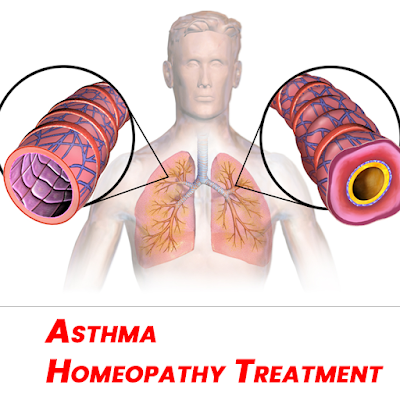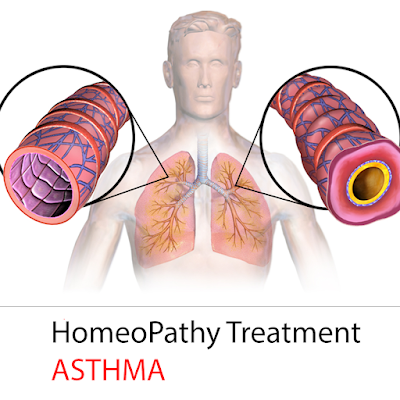Medical professionals describe this common symptom of respiratory illness as wheezing. Everyone can be affected by an asthma-related illness like asthma however, children of the earliest age are believed to be more vulnerable to it. It can take many forms based on the trigger.
Bronchial asthma (or bronchial) is a long-lasting and occasionally fatal lung disease that is known under the name "asthma." The majority of the time, it happens when the airway gets blocked due to pressure or excess mucus. Your physician may provide an order for medications that can help reduce the symptoms of asthma.
The following are helpful in asthma treatment:
Asthma Medicines: They are utilised when asthma attacks occur to open the airways and provide instant relief.
Allergen Avoidance: The identification and avoidance of triggers that could aggravate asthma symptoms is essential. The most common triggers are pollen dust mites, pet fur smoke, mold and certain chemicals. Making sure you limit exposure to allergens, for example, having bedding that is allergen-proof as well as keeping the house tidy and well-ventilated, as well as avoid smoking cigarettes or exposure to smoke from secondhand sources, can ease asthma symptoms.
Lifestyle modifications: Regular exercise fitness improves overall health, which includes the function of the lung. Patients suffering from asthma should work with their doctor to design an exercise regimen that is suitable for their needs and doesn't trigger symptoms.
Healthy eating: Having an optimum diet that is balanced and full of fresh fruits and vegetables, as well as whole grains, is beneficial to help improve overall health and reduce asthma symptoms.
Management of stress: The effects of stress and emotional turmoil can trigger asthma-related symptoms. Strategies like meditation and deep breathing exercises, and relaxation techniques can assist in alleviating stress and lowering the likelihood of flare-ups.
The Asthma Action Program: With the assistance of an allergy and asthma specialists, it is essential to come up with an action plan for asthma. It contains instructions on how you can manage asthma on a regular basis, recognises severe asthma symptoms and takes the appropriate action like changing doses of medication or seeking medical assistance.
It's essential for those suffering from asthma to work tightly with an asthma doctor to develop a customised treatment plan that is based on the severity of their symptoms as well as their specific needs. Regularly scheduled check-ups and regular dialogue with healthcare professionals are crucial to efficient asthma management.
As a life-threatening and dangerous disease and a life-threatening illness, the asthma specialist near me should be able to assess and manage asthma. The below-mentioned home remedies for asthama can be beneficial to asthma sufferers and can aid in a natural cure for asthma.
Karpoorathy Oil
If you suffer from asthma, karpoorathy oils could be beneficial. It can aid in the elimination of phlegm that has accumulated in the chest. It can also facilitate easy breathing. Applying the oil to your back and chest may be suggested by a homoeopathic physician.
Pranayama
Pranayama is the term used to describe breathing exercises. Pranayama exercises can be used to strengthen the respiratory system, which could aid in treating asthma. They may also aid in the reduction of stress.
Mulethi
Mulethi is also known as yashtimadhu or liquorice root. Its scientific title is Glycyrrhiza galbra. It is part of the Fabaceae family. It can aid in the treatment of asthma by homeopathy. A homoeopathic doctor may suggest drinking a tea made of liquorice root. You can take the root and boil it in water before making the tea. This tea can be beneficial to people suffering from asthma.
The asthma attack symptoms are chronic respiratory disease caused by inflammation and narrowing of the airways, and coughing. It can be characterised by wheezing, a sn chest tightness and breath shortness. The homoeopathic treatment for asthma is designed to improve the function of the lungs, control and manage the symptoms as well as reduce causes of asthma and prevent attacks of asthma.


.png)

.png)



